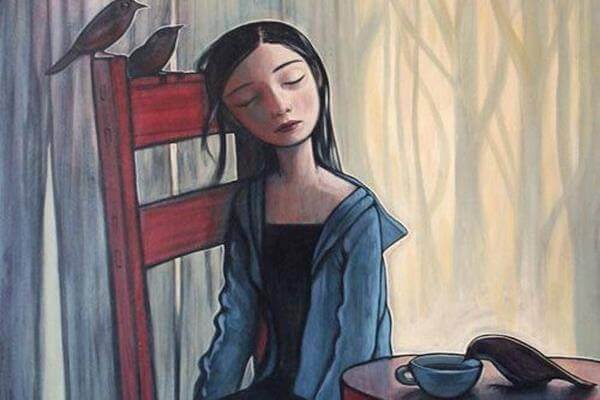Sadness seems to be one of the most characteristic signs of our time, as if depression had invaded people. Currently, the World Health Organization publishes successive reports of an increase in the number of people diagnosed with depression, to the point that some treat it as a pandemic.
Under the label “depression” all kinds of sadness or discouragement are classified. But not only that, depression has become a perfectly tolerable and even exalted condition in everyday life. Is it very common to hear that someone is “depressed”? Or ‘I don’t go out today because I’m a little depressed. ‘ What a few decades ago was a psychiatric problem has now become an everyday fact and merges with sadness.
“Cowards die several times before they die, the brave die only once. “
-Willian Shakespeare-
Gradually, we receive distractions, entertainment and hobbies that help us cope with a life that is not so pleasant or worthy of being lived, we are disconnected from our inner essence and by the time we realize, question and feel overwhelmed.
There are serious doubts about the interests that may be behind this epidemic of depression, there is a scientific discourse that values the biological and genetic factors involved in sadness, so that people do not feel responsible for the suffering that plagues them, the best solution is to take a drug and pharmaceutical companies are the main beneficiaries of this “epidemic”.
In the past, the mood disorder that made people stay passive, sad and unsused to live was attributed to an imbalance of “body moods. “
In the Middle Ages, this chronic sadness was called?Heartburn? (deep melancholy), and this was one of the deadly sins; then this concept of sin was absorbed by “laziness. “Dante, the great poet, said that people affected by permanent sadness and who have done nothing to overcome it must be in purgatory lamenting lost time.
In the 19th century, psychiatrist Joseph Guislain defined this permanent state of sadness as the “pain of existence. “Later, Séglas called it “moral hypochondria. “
In the twentieth century, psychiatry began to use the term depression and defined it as a disorder characterized by anxiety, guilt, anxiety, discouragement, decreased self-esteem and a permanent state of self-care or self-healing that greatly affected the patient. person’s lifestyle.
It is Lacam who ends up defining chronic sadness as an effect of moral cowardice, this is not an accusation, but a vision that everyone must know the reason for his sadness, everyone has the obligation and responsibility to address and understand this sadness in order to deal with it.
People who suffer from chronic sadness experience a strong sense of inadequacy, it seems that life passes in a scenario that is not theirs, they are oblivious to everything that happens around them, the world turns and they are still there. The present does not exist, the future is an omen of more suffering and the past is an inventory of the losses that imprison them. People with depression always ask themselves, “What is the meaning of life?” It would have been better not to. have born. “The question and the statement are two traps in themselves.
Life doesn’t make sense in itself, it makes sense to it, there’s no book, instruction manual or law that says what life is like, and as for the claim that it would have been better not to be born, that’s a serious mistake. . We were born and here it is an accomplished fact.
Both the subject and the statement deprive the person of responsibility. “If life doesn’t make sense, I’m not interested in living. “”If I haven’t asked to be born, don’t ask me to do something worth using.
In this way, everything becomes the object of sadness; herein lies his moral cowardice. For some people, sadness is a source of pride: is it proof of their?special condition and allows them to build a discourse of which they are eternal victims.
It is true that not everyone comes into the world in the same conditions, some are unwanted children or are poor, abused or abused while they cannot yet respond or thousands of situations that cause pain, these painful precedents can be the cause of new weaknesses and disappointments.
However, each of us must decide what kind of interpretation we can give to these situations, it is our responsibility and we cannot let our frustrations slip on the shoulders of others, when we deny life itself we assume that we are melancholy losers of everything. the joy that life can bring us.

